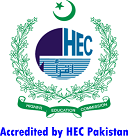The EU’s Campaign to Abolish the Death Penalty: Pressure on Pakistan
Keywords:
Capital punishment, European Union, Pakistan, abolitionist, retentionistAbstract
Capital punishment has been in use since ancient times as punishment for intentional murder or other serious crimes; the aim was to protect the lives and property of people and to preserve peace in society. With advancement in the standard of human rights after the two great wars of the twentieth century, over the decades, human rights organizations have been making intense efforts for complete abolishment of the death penalty, which is now being increasingly seen as a challenge to human rights and human dignity. This paper discusses the death penalty within the context of Pakistan’s relations with the European Union. The latter has abolished it completely inside its borders while Pakistan still retains it. The EU strongly opposes the death penalty in all circumstances, and its abolition all over the world is a foremost priority of its external human rights policy. The EU does not hesitate to use its diplomatic and political weight to encourage countries to join the ranks of the abolitionists. It has been funding campaigns to increase awareness of the need to abolish capital punishment. The EU’s institutions, including the European Parliament frequently adopt resolutions condemning countries that continue to impose capital punishment and they host debates to convince the world to follow in their footsteps. Owing to the heated international debate on capital punishment and efforts by human rights organizations to secure the universal abolition of the death penalty, the issue has also been a subject of discussion in Pakistan. In this regard, the country is facing both external and internal pressures. The European Union, the biggest trade partner of Pakistan, continues to urge Pakistan to halt all executions, as capital punishment violates the international human rights conventions.
Downloads
Downloads
Published
Issue
Section
License
Copyright (c) 2021 Journal of European Studies (JES)

This work is licensed under a Creative Commons Attribution-NonCommercial 4.0 International License.














